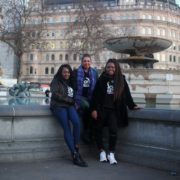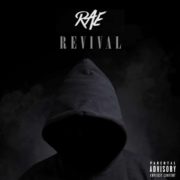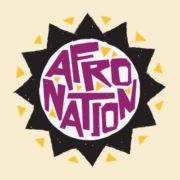Every Month is Black History Month: the Rollout of The Black Curriculum

Black British history is history, although British history will have you questioning whether this is the case. The perpetual erasure and marginalisation of Black Brits and their stories is something that has become so embedded in culture that one can almost be forgiven for such a slip.
“We shouldn’t have to exist”
Lavinya Stennett, Founder, The Black Curriculum
The Black Curriculum (‘TBC’), a project founded by former SOAS student Lavinya Stennett in November 2018, seeks to play its part in changing this. With a view to making Black British History accessible to all young people, TBC has produced a detailed Secondary School curriculum focussed both on ensuring that young Black Brits understand their own history and on educating non-Black students about the contribution that Black Brits have made to British history. According to Lavinya, there has been insufficient progress on this front since the 1999 Macpherson Report, which followed the racially motivated murder of Stephen Lawrence.

Black History Month has been an annual fixture in the UK since 1987, celebrated in schools and at tens of thousands of events across the country. TBC aims to highlight the many forms of Black history in Britain – historic and contemporary, without restricting it to one single month. They believe that “young people should be exposed to this history in lieu of American civil rights history from an earlier age” and argue that “learning Black British history should be mandatory in all schools, and should be reflected in the curriculum and in exam board guidelines.”
TBC’s curriculum is categorised thematically into four subject groups (composed of 12 sub-topics): (1) art history; (2) politics and the legal system; (3) migration; and (4) land and the environment. With TBC already in talks with the Department for Education, with a pilot having already been completed with 16 schools and with the curriculum having been licensed to many more, and with plans of going nationwide in five years, TBC looks like it is here to stay.
To kick off the new year, Guap caught up with Lavinya, and her colleagues Michelle and Bethany to find out more.
[Aji: How was TBC’s Pilot in October?]
We had a very positive response. We went into schools to deliver some of the workshops that we had created from the syllabus that we had put together. Working with schools in South London, we were able to reach 600 young people.
[Aji: What are your backgrounds? Were you all teachers before?]
Lavinya: I only just graduated, but I am a school governor.
Bethany: I have experience as a teaching assistant and have worked in a primary school, so I’ve been in school environments for a while.

Michelle: I’m a teacher myself with over 10 years experience working with young people in various different educational establishments.
[Aji: How did the three of you come together to create this?]
Lavinya: So initially it was I who had the idea. I then took it to a conference for Black women where I met an individual (Lisa) who was interested in supporting the project – this girl was Bethany’s best friend. As Lisa, Bethany and I continued to work on the project, we decided to reach out through social media to see who else was interested. This is how we connected with Michelle who ultimately joined the team.
[Aji: Individually, what was it that made you want to join the project?]
Bethany: So Lisa and I, having done a history degree together, had a real passion for it. But also working in schools and observing the lack of representation within the curriculum [also made me interested in joining]. Finally, it was completing my Masters in Health Systems and Global Policy that made me realise that I could bring a health aspect to the project – something a little bit different.
Michelle: For me, I saw it very much as an opportunity to give back to the community. When I joined, I wasn’t actually teaching at the time but supporting those from BAME backgrounds was something I was very passionate about.

[Aji: I’ve actually got a question on that point – is TBC for Black individuals or for ‘BAME’?]
Lavinya: It’s actually in this case for everybody. So all young people are facing the negative impact of not having Black history on the curriculum. Having a Eurocentric curriculum creates a lack of belonging and identity for young Black students particularly, but in the context of wider society, there are white students who have no idea of our contribution to the country – something that has been ongoing since ‘Day Dot’. That’s problematic for me.
[Aji: That makes a lot of sense. And I think the fact that it has taken an external organisation like yourselves to force this through says it all. So I love what you guys are doing. What kind of challenges or push back on the project has TBC experienced along the way?]
Lavinya: There is always going to some sort of resistance to anything that is explicitly about ‘Blackness’. We’ve had trolls asking us questions such as ‘what about white history?’; as if all history in this country isn’t already white history.
For us, I think, our main thing is getting into schools; schools have a set curriculum which they plan months in advance. Many teachers also don’t even have any idea on how to approach this topic outside of Black History Month – which is where we come into help.
Bethany: Another challenge we’ve experienced is, given that we focus on secondary schools, the general focus is on results. It can be difficult to get them to see it as a priority.
[Aji: How do you make them see it as a priority?]
Lavinya: I think the main thing is understanding the impact it can have on young Black students. Whilst there isn’t always direct causation, there is still a lot of negativity caused by the ignorance.
Michelle: I think that anything that tries to address Black representation is always going to be challenging, but it is something that has to be done. The burden often falls on Black people to educate other people, but I think that there is still a great need to do so, mainly as future generations will benefit from the work that we are doing now.
Coming from my Caribbean background, we have always done this from the ground up and have always tried to educate our children about where they belong in society – from things such as Saturday schools to things that are much broader and more sophisticated, like this. What we are doing is essential.
[Aji: It isn’t new, but there has been a lot more talk on social media of late of it not being the responsibility of Black people to educate white people on racism and their humanity. Why was it that you decided to go through the school route rather than creating something that existed completely independently of the school system?]
I think maybe going back to our aims – it is important for everyone to know this. School is mandatory from the ages of 5-18. For us, school was the main way to get this information out to everyone.
[Aji: One or two final questions. Where do you see TBC in 5 years?]
Lavinya: Definitely nation-wide, we would like to be a household name and a reference point for ‘changing the narrative’. We are not only an organisation but also a campaign – we do the work and speak our minds. We would like people to hear about what we’re doing, have a clearer sense of what their passions are and where they belong in society, and to go out and fight for what they believe in.
[Aji: That’s good to hear. Like I’ve seen campaigns where over time people have forgotten about the organisational side and the need to actually do things in the community. So I think it’s really good that you’ve got both there from the start. And I think that by doing so and not only trying to change the minds of white people who for the most part don’t care about what you are saying is how you maintain the support of your community along the way. I think that’s really important moving forwards. Practically, how did you go about creating the curriculum?]
Bethany: So essentially, Lavinya and the researchers did the initial research, and then the content creators put it into a teachable format.
Lavinya: So there are 12 topics overall, and every topic has an array of research templates, powerpoints, lesson handouts and so on.
Michelle: So, to give an example, I helped put together the curriculum for the ‘Music’ topic of ‘Art History’. I was paired with a researcher that did the initial research of content that was at the correct level and depth to use and teach, and then I put it into a teachable format to create lesson plans – ensuring that certain objectives were hit and so on. So I did the ones that were based around sound system culture, reggae music, and calypso music.
Lavinya: One interesting thing to note is that we have also had interest from primary schools and post-sixteen colleges also. They’re able to use the resources in their classes, so we can license it out to them.
Just to reiterate that we shouldn’t have to exist – until we can get to that point, for us it is about supporting teachers as much as possible and putting the correct sort of structures in place.

You can keep up with TBC’s progress here and here. For enquiries, please get in touch via their website.




![ZINO VINCI’S ‘FILTHY & DISGUSTING’EP BRINGS YOU TO THE CORE OF THE ARTIST [@ZinoVinci]](https://guap.co/wp-content/uploads/2023/10/Zino-4.jpg)





![Remel London’s [@Remel_London] “Mainstream” is a must attend for upcoming presenters!](https://guap.co/wp-content/uploads/2017/02/REMEL-LONDON-FLYER-FINAL-YELLOW-COMPLETE-1.png)